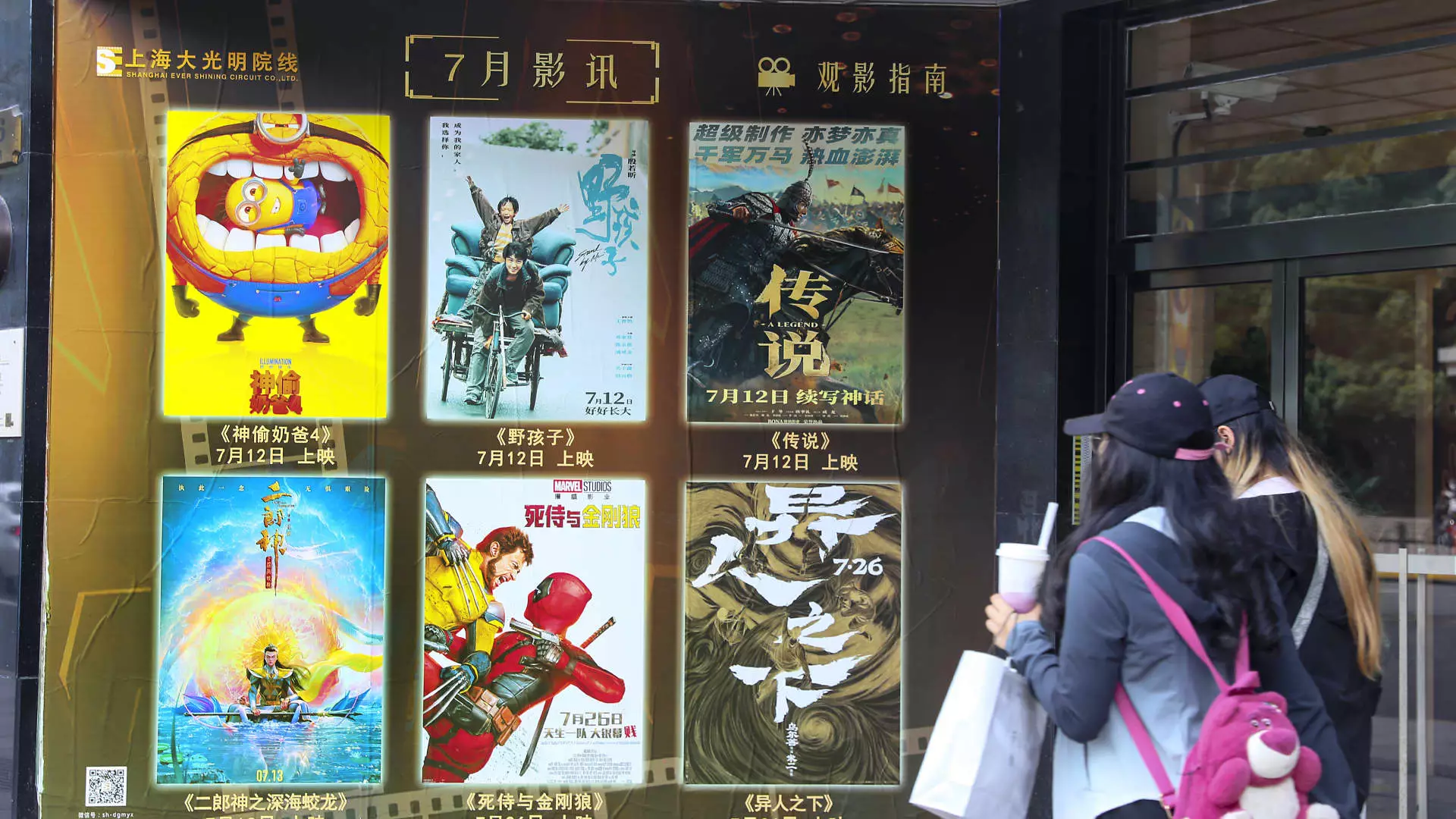At the heart of Hollywood’s glitzy façade lies a grim truth: American cinema is at a crossroads, fighting for survival amidst escalating international tensions. President Donald Trump’s intensifying trade war has far-reaching consequences not only on tariffs and economics but on the very core of cultural exchange. The fallout has pierced through the film industry like an ill-timed plot twist, leaving Hollywood floundering in the wake of substantial challenges from the ever-evolving Chinese market.
In an era where films are crafted not just for artistic merit but also with fiscal strategy in mind, studios must now confront the stark reality that their once-reliable profit streams from China have all but dried up. The recent decision by the Chinese government to impose restrictions on the number of Hollywood films allowed to be shown further solidifies the sentiment that this is not a mere hiccup; it is a full-blown crisis.
Turbulent Waters Following Trade Tariffs
This isn’t just a theoretical concern; tangible repercussions are emerging as evidenced by the plummeting stocks of iconic companies like Disney and Warner Bros. Discovery. When the trade climate grows volatile, investors are quick to react, and it’s no surprise that Hollywood is caught in the crossfire. The sense of stability that once enveloped big-budget film releases is eroding, leaving studios with a grim forecast for their financial projections.
The allure of the Chinese box office was once undeniable—a gilded palace where an American blockbuster could rake in hundreds of millions of dollars. Yet, as the decade progresses, China has been producing its own cinematic masterpieces, effectively captivating local audiences who now prefer homegrown talent and stories. Ann Sarnoff, former CEO of Warner Bros., articulated this tragedy when she noted that expectational revenues from China are steadily dwindling. What was once a cultural powerhouse is transforming into a formidable competitor, causing American studios to rethink their strategies.
The Cost of Ignorance: The Impact of Political Decisions on Culture
There lies an irony: a country famous for its creativity and cultural exports is now at the mercy of its own political machinations. The expiration of the U.S.-China Film Agreement in 2017 has opened floodgates of competition that were once held in check. Hollywood has yet to navigate this newly turbulent landscape, and in many respects, the consequences of longstanding economic policies have culminated in this dire predicament.
Aynne Kokas, an academic deeply enmeshed in this discourse, explained that during the first trade war of the Trump administration, the focus on other industries effectively sidelined the film sector. For a nation that prides itself on cultural soft power, this neglect could arguably be considered a significant oversight. The Chinese film industry has blossomed with cutting-edge technology and storytelling that rivals that of Hollywood, resulting in blockbusters that have shattered box office records, such as “Ne Zha 2.” This unprecedented success should serve as a wake-up call for U.S. studios to reassess their role in a rapidly changing entertainment landscape.
A Glimmer of Hope Amidst the Ruins?
Is it all doom and gloom for Hollywood? Perhaps not entirely. While the decline in box office revenue is unsettling, there’s an opportunity for reinvention when the dust of this trade war eventually settles. The complexities of international markets can serve as fertile ground for innovation in narrative and production. Hollywood could benefit from learning to adapt to new consumer preferences and delving deeper into collaboration rather than competition.
The trade war may be challenging, but it is a moment ripe for critical self-reflection. The industry might consider finding a balance between commercial success and authentic storytelling that resonates across cultures. Hollywood has proven its resilience time and again; whether it can leverage this moment to write a different narrative remains to be seen. The stakes have never been higher, and as long as cinematic voices persist, there exists a chance for revival.


Leave a Reply